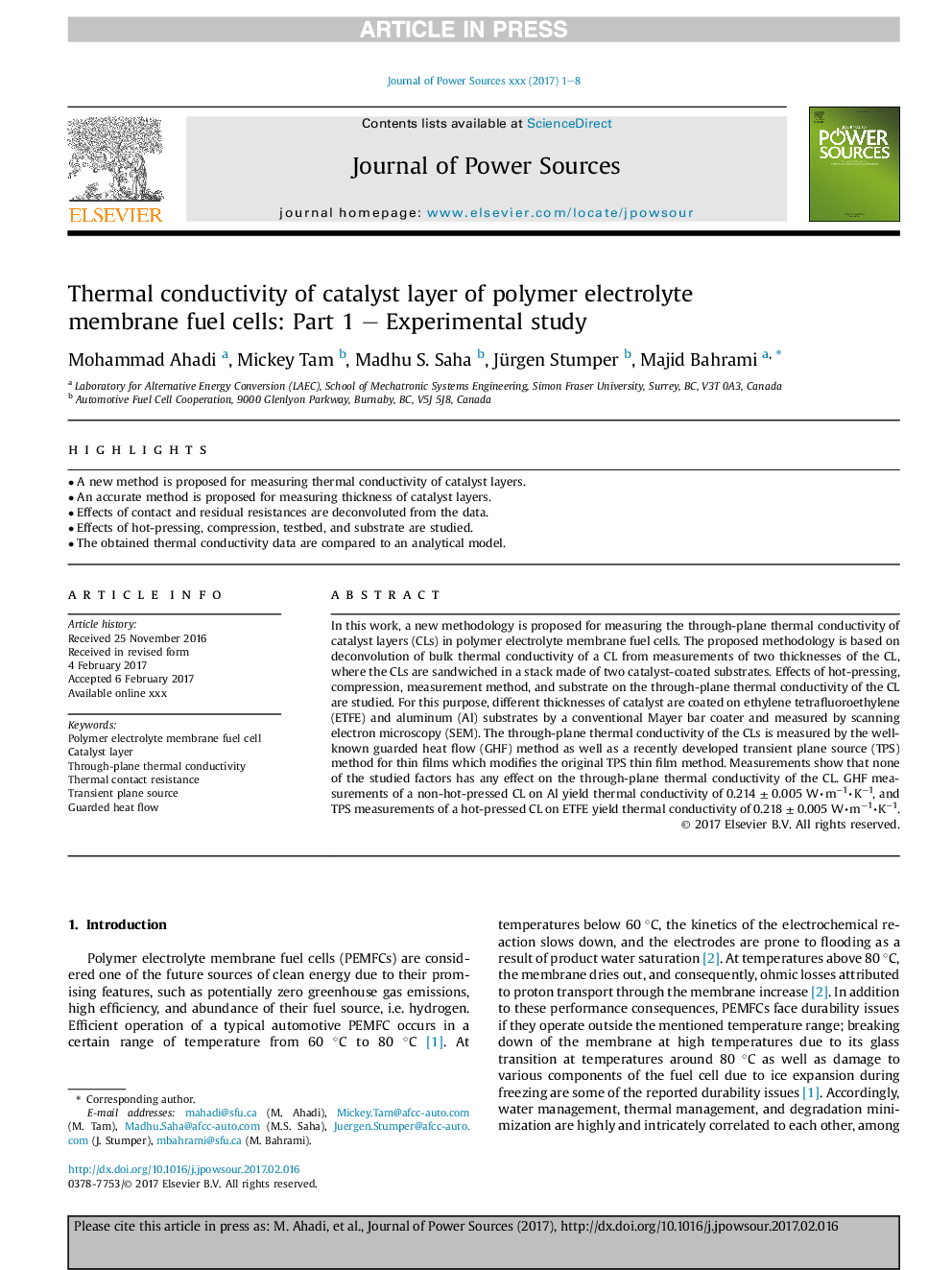| Article ID | Journal | Published Year | Pages | File Type |
|---|---|---|---|---|
| 5149348 | Journal of Power Sources | 2017 | 8 Pages |
Abstract
In this work, a new methodology is proposed for measuring the through-plane thermal conductivity of catalyst layers (CLs) in polymer electrolyte membrane fuel cells. The proposed methodology is based on deconvolution of bulk thermal conductivity of a CL from measurements of two thicknesses of the CL, where the CLs are sandwiched in a stack made of two catalyst-coated substrates. Effects of hot-pressing, compression, measurement method, and substrate on the through-plane thermal conductivity of the CL are studied. For this purpose, different thicknesses of catalyst are coated on ethylene tetrafluoroethylene (ETFE) and aluminum (Al) substrates by a conventional Mayer bar coater and measured by scanning electron microscopy (SEM). The through-plane thermal conductivity of the CLs is measured by the well-known guarded heat flow (GHF) method as well as a recently developed transient plane source (TPS) method for thin films which modifies the original TPS thin film method. Measurements show that none of the studied factors has any effect on the through-plane thermal conductivity of the CL. GHF measurements of a non-hot-pressed CL on Al yield thermal conductivity of 0.214 ± 0.005 Wâ
mâ1â
Kâ1, and TPS measurements of a hot-pressed CL on ETFE yield thermal conductivity of 0.218 ± 0.005 Wâ
mâ1â
Kâ1.
Keywords
Related Topics
Physical Sciences and Engineering
Chemistry
Electrochemistry
Authors
Mohammad Ahadi, Mickey Tam, Madhu S. Saha, Jürgen Stumper, Majid Bahrami,
